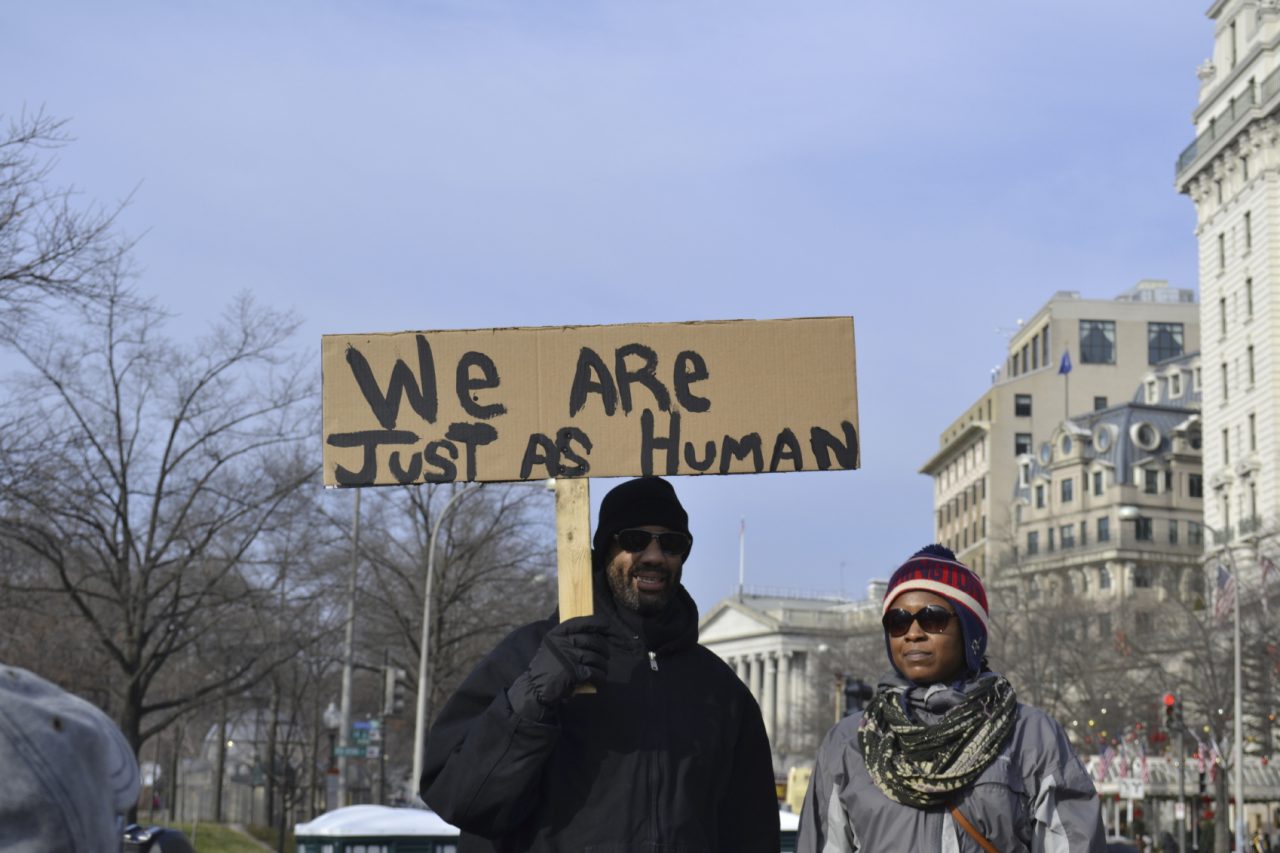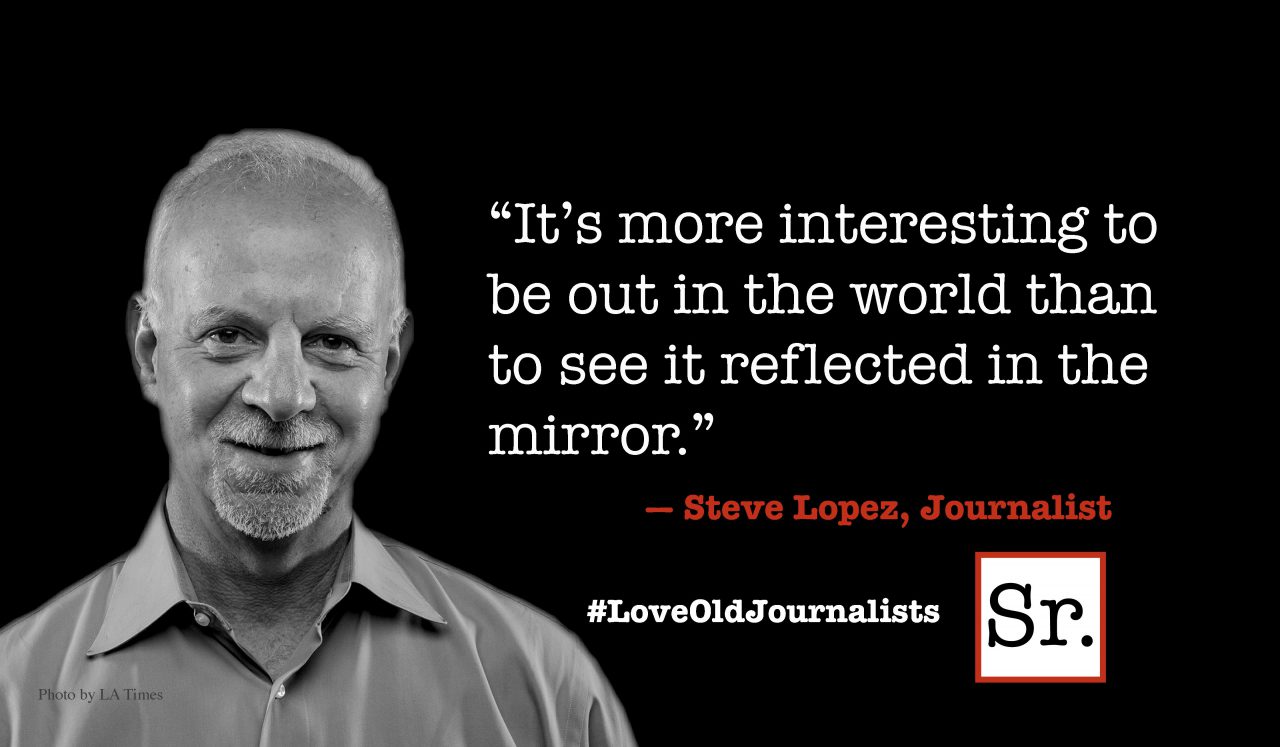“No human race is superior. No religious faith is inferior. All collective judgments are wrong. Only racists make them.” – Eliezer Wiesel.
An ugly thread twists like a lethal snake through our lives: Mass murder by a white man in an African American church in Charleston, S.C.; white cops shooting unarmed black men; the mysterious deaths of African American women in jail; cops allowing minor encounters with citizens of color to spiral out of control; knee-jerk hostility and distrust aimed at all cops.
Where did that ugly thread begin, and why?
Elie Wiesel, a Holocaust survivor and social commentator, has an uncomfortable answer. All of these hateful events are fueled by the collective judgments all of us make about one another.
It doesn’t take a lot of imagination to figure out where we learned to hate or distrust “the other,” any person who does not look like us.
Collective judgments arose the first time a band of Neanderthals attacked a Cro Magnon encampment and ran off with the gourds. From that time on, images of bone-browed, beady-eyed, slack-jawed bad men were cited by Cro Magnon mothers to keep the kids from escaping the cave. The Bogeyman was born.
The Bogeyman — not always male because children in many cultures recoil from female phantasms — represents persons from any group we don’t like, trust or understand. This Bogey Person varies from culture to culture, depending on the particular brand of xenophobia the culture covets. For my Cuban father-in-law, he was “El Italiano.”
The Bogeyman is thousands of years old and was usually a member of an enemy camp or nation. Many historians trace the Bogeyman to Napoleon Bonaparte, whose army periodically threatened British shores. Known as “Boney” by the wary Brits, he was the scariest specter English mothers could conjure when they warned their children to stay close to the house.
By the time Napoleon was exiled on Saint Helena Island in 1815, he was more commonly styled the Bogeyman. There is a story that when the British caretakers on the island told their children that they were there to guard the Bogeyman, Napoleon was amused. According to some reports, he would place his index fingers on his head like horns and give chase to children as they ran giggling and screaming.
The Bogeyman is emblematic of the distrust and fear we have for people who are not like us. If we are honest with ourselves, the Bogeyman is lodged firmly in our genes. Those of us who think we’re free of him are in denial.
It is the Bogeyman that persuades depraved white men to launch a xenophobic war against persons of color. It is the Bogeyman that blinds cops to the humanity or persons of color and prompts them to shoot first and ask questions later. It is the Bogeyman that blinds persons of color to the humanity of cops and imagines them as fascist goons.
In our culture today, the Bogeyman is racism, the collective judgment we make against persons who are different. Racism persists in our culture like an infection and many who have the most virulent strain don’t even know they are sick.
Today in a million offices, schools, churches, and police stations, white folks will make stupidly racist remarks based on stupidly racist assumptions about persons of color. They will react to persons of color differently and treat persons of color differently — and, when challenged about it, they will be stunned and hurt because – as they will tell you — “I don't have a racist bone in my body.”
But even in the age of Obama, racism flourishes and each day the majority finds a new way to make the minority feel marginalized. My daughter, who is racially mixed (as are my five other children), reacted this way a few years ago when President Obama tried to reconcile a cop who arrested a black university professor on his own porch because the cop assumed he was an intruder. Obama invited the cop and the professor to the White House for a beer. My daughter wrote in her Facebook update: “Elita wishes she could have a beer with the president every time she gets racially profiled.”
There were only a handful of African Americans in Madison County N.Y. where I grew up. Some of these persons of color may have been descended from slaves who settled in Peterboro, an outpost of the Underground Railroad operated by the abolitionist Gerrit Smith. Looking back, I am appalled by memories of how the white majority — including me — treated them. Black children were taunted with the ‘N’ word on the playground, or slapped by white teachers in school, and — in one memorable incident — subjected to an incredibly obtuse but well meaning teacher who used the ‘N’ word in a rhyme to select the next person to read from a text book: “eeney, meeney, miney mo …”
I can't begin to imagine how uncomfortable we made children of color back then. And most of us oppressors would have insisted that we didn't have a racist bone in our bodies.
I haven't seen Tony Campolo for years, but judging from his press pictures, he's the least changed of my Eastern Baptist College professors from the sixties.
Tony was known for making startling claims with ex cathedra authority, which was challenging in the day when you couldn't vet his claims through Google, and he tried out some of his more famous lines on us: “Last night when you were sleeping, 30,000 kids went to bed hungry and you don't give a shit about it. Worse, you're more upset that I said shit than the fact that 30,000 kids are hungry.”
Once Tony said something, it was hard to forget it. Among the Tonyisms I remember:
“If you grew up in the United States, you are a racist.”
I first heard Tony say that in Soc 200 in 1968, and the notion surprised me. But as the years pass, I find fewer reasons to doubt it. I’m a racist, you’re a racist, all God's children who grew up in the race-obsessed cauldron of American culture are racist.
Now, that's not necessarily a peculiar aberration. Racism is a sin, and we all know we are sinners who fall short of the glory of God. To deny our racism is to deny we are sinners.
The next time you hear someone say, “I'm color-blind,” or, “I don’t have a racist bone in my body,” smile ironically and walk away.
Of course, there are also people who are not ashamed of their racism and flaunt it on Twitter and Facebook. Certainly people in the U.S. (and elsewhere) who openly tweet their hatred are to be feared.
Particularly scary are those white folks who complain they have lost their freedom and status because a black man has twice been elected president, and because the president declares a commitment to universal healthcare, economic justice, immigration reform, and gun control.
Those nervous white folks have difficulty seeing that they haven’t lost any freedoms because freedom is being offered to more people. In fact, the more races, ages, ethnic groups, and sexual orientations that are empowered in the U.S. system, the more freedom everyone has.
Be that as it may, the most dangerous people in America are not those who tweet their hatred openly.
The big problem is people who don’t believe they are racists.
That problem group may include you, me, Obama, Bill O’Reilly, Fox News, Rush Limbaugh, Al Sharpton, or anyone else who is supposed to have a dispensation from the sin of racism.
But racism is the Bogeyman that haunts us all. He is the great Satan who lives in every heart, and forces us to cringe in the presence of others we don’t understand or don’t like. This reality was understood by spiritual savants and mystics since the beginning of time. That is why Hillel, Buddha, Mohammed, Jesus, and others urged us to open our minds and hearts and treat everyone the way we would want to be treated. Because we naturally distrust our neighbor, the Creator added a non-negotiable caveat to our existence: Love Thy Neighbor.
Loving our neighbors and loving our enemies is the only defense against the Bogeyman.
Repeating the gospel of Campolo: “You can’t grow up in the United States without being a racist.”
But there is no defense against the Bogeyman if we keep looking for him in the camps of persons we neither like nor trust.
The Bogeyman is far closer and far more dangerous than that. When we examine our own hearts, the unpleasant reality becomes all too clear.
We have met the Bogeyman. And he is us.









